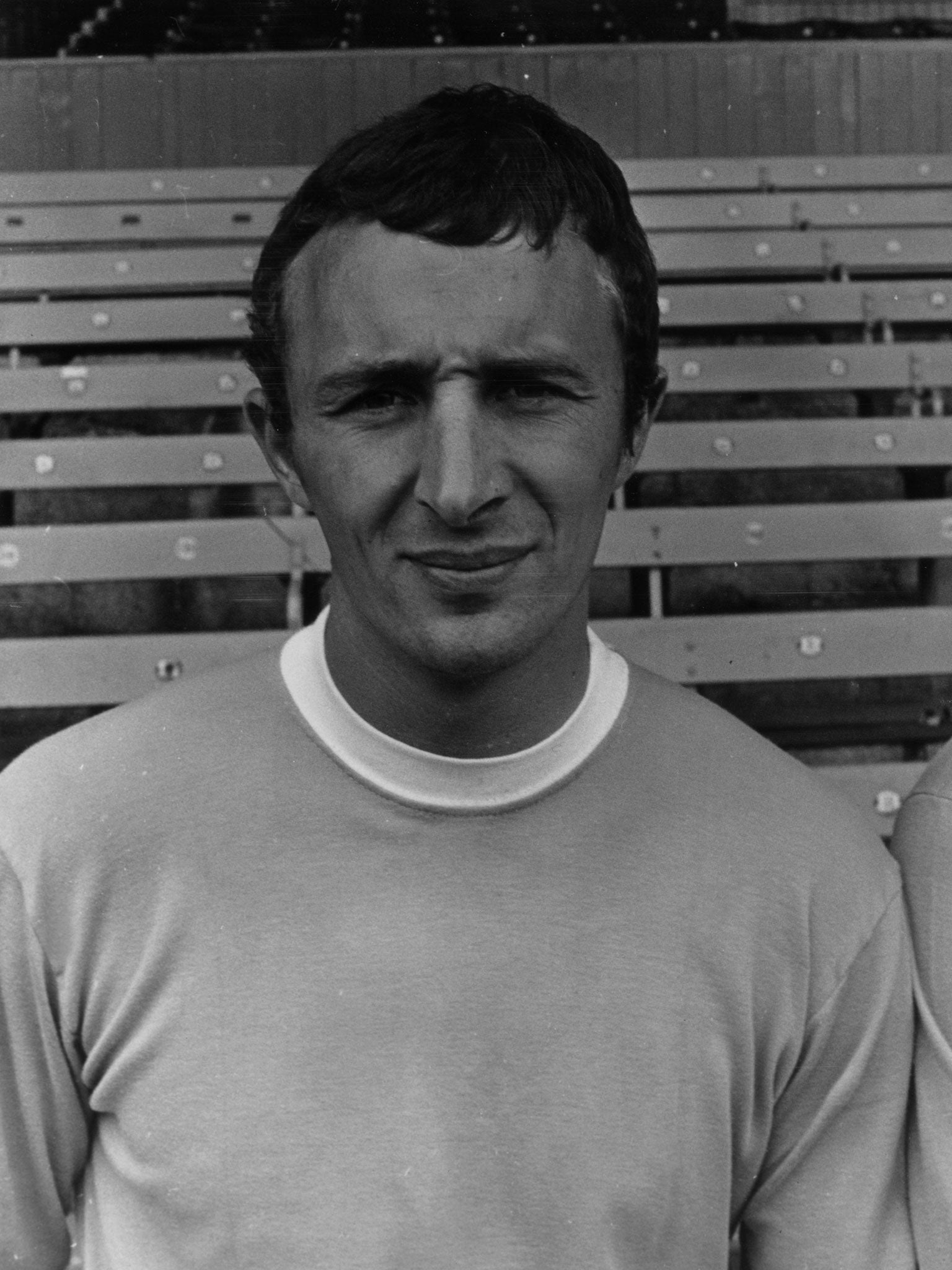Manchester City v Manchester United: The day rivals swapped kits for cricket whites
Neighbours battled it out at the other Old Trafford – and even George Best had a go

Your support helps us to tell the story
From reproductive rights to climate change to Big Tech, The Independent is on the ground when the story is developing. Whether it's investigating the financials of Elon Musk's pro-Trump PAC or producing our latest documentary, 'The A Word', which shines a light on the American women fighting for reproductive rights, we know how important it is to parse out the facts from the messaging.
At such a critical moment in US history, we need reporters on the ground. Your donation allows us to keep sending journalists to speak to both sides of the story.
The Independent is trusted by Americans across the entire political spectrum. And unlike many other quality news outlets, we choose not to lock Americans out of our reporting and analysis with paywalls. We believe quality journalism should be available to everyone, paid for by those who can afford it.
Your support makes all the difference.As unfamiliar as Sunday’s Manchester derby will be, with no Sir Alex Ferguson in charge, it will at least be football. Even that has not always been the case; on a summer afternoon, on 21 July 1968, City and United met for a game of cricket.
It took place, of course, at the other Old Trafford, Lancashire’s cricket ground. This was probably the very peak of the fame and glamour of Manchester football. United were European champions, England’s first, having just triumphed over Benfica 4-1 at Wembley. And City were champions of England, having beaten United to the title by two points.
The game was arranged to contribute to the testimonial fund of Ken Higgs, the Lancashire stalwart – almost a Glen Chapple of his day – wearing the Red Rose throughout the 1960s and taking over 1,000 wickets for them.
On those terms, it was very successful, attracting a crowd of 15,000, paying four shillings’ admittance, the day contributing over £2,000 to Higgs’ testimonial fund, which eventually reached £8,390. The popular enthusiasm for the game was no surprise, as this was still three weeks before the start of the 1968-69 season, as well as being the latest contest between the two big rivals.
And, as Mike Summerbee recalled, there was popular curiosity too. “I think the majority of the crowd came to see if George Best could play cricket as well as he plays football,” he told The Independent. “George was in there just to get the crowd in. He was never a real cricket man. When you’re a footballer, you always have an eye for the ball, but if you’re facing a fast bowler it’s a different experience. It would have been more difficult for George.”
But it meant for a slightly different cricket crowd than usual. “An outsider might well have blinked,” reported The Guardian the next day, “to find such a large crowd bedecked in coloured scarves and armed with rattles and Union Jacks yelling ‘howzatts’.”
City batted first and, bolstered by players with more cricketing experience, scored 168. Francis Lee had played in the Lancashire League, while Colin Bell and Summerbee had both been accomplished school players.
United, with Best opening the batting with trainer Jack Crompton, could score only 79, despite having accomplished cricketers themselves in David Herd and David Sadler. For some, though, it was an unfamiliar afternoon.
“It was a new experience,” remembered Pat Crerand. “Cricket wasn’t the forte of people from Glasgow, it wasn’t our strongest sport. I think I was out first or second ball.”
So City won, but out on the pitch it was not desperately competitive. Summerbee recalled having a laugh with George Best – “my best pal, my best man when I got married” – about not even having the correct kit and playing in black socks.
The game did not get in the way of Summerbee and Best enjoying themselves either. “We socialised before the game, never mind after the game,” he said. “Or on the middle of the pitch – it was very much a social situation. When the players were off the football field there were some great relationships. And that really epitomised the closeness of the players, playing in Ken Higgs’ testimonial.”
The outcome mattered rather more to the supporters, though. The City fans were all in the Warwick Road End, the United fans in the Stretford End, and when it ended they started to scrap.
“The pitch was invaded by young supporters and a number of bottles were thrown around the ground,” reported The Guardian. “A police spokesman said last night that after the match five young people aged between 13 and 16 years were charged with various offences including carrying offensive weapons, causing a breach of the peace and assaulting policemen.” And with that went any chance of a repeat.
Join our commenting forum
Join thought-provoking conversations, follow other Independent readers and see their replies
Comments